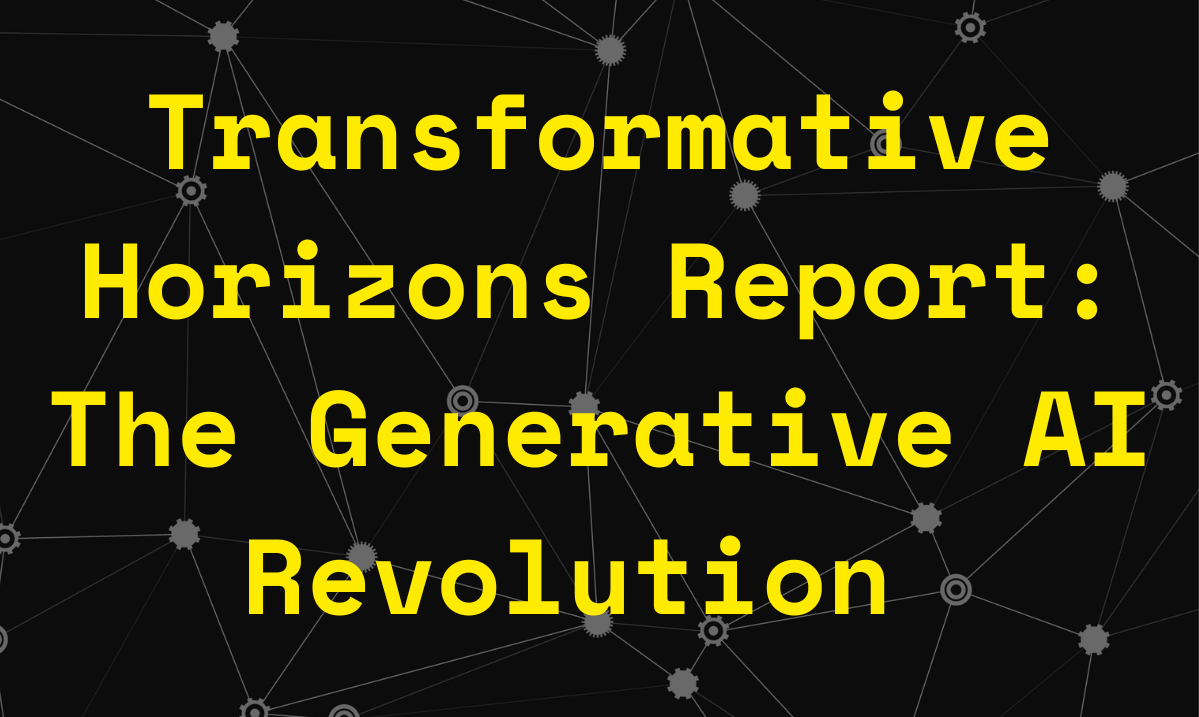Expo & Content Sessions: 17 - 19 Nov 2026
VIP & Partner Events: 16 - 19 Nov 2026
Cape Town International Convention Centre, Cape Town

Transformative Horizons Report: A deep dive into the Generative AI revolution
It’s fair to say that Artificial Intelligence (AI) is making a significant impact on the public consciousness.
While the first smartphones captured people’s imaginations and wallets, there has never been as much debate as there has been about the impact AI will have on our lives - from the way we study to the way we work and interact with one another.
Of particular interest right now is generative AI. A technology that enables the creation of novel outputs t (including text, images, video, speech, 3D objects and coding) based on a set of instructions or prompts, generative AI works by learning the patterns and structure of existing data. It then uses this knowledge to generate new data that has similar characteristics.
Undoubtedly, generative AI has the potential to revolutionise industry, creating new business models, reducing operational costs and driving productivity.
However, as with any new technology, the roll out of generative AI applications, as well as AI more broadly, leads to challenges – not least ensuring that it is done responsibly and safely. Last November saw the UK host the world’s first AI Safety Summit at Bletchley Park, home of the World War Two code breakers. And in December 2023 the EU finally passed its landmark Artificial Intelligence Act which is due to come into force next year.
Looking to the future, organizations will be able to use the latest Generative AI applications to exploit new business opportunities, if they are not already. However, doing so will inevitably present numerous challenges along the way.
In this report we look at the current market drivers within the emerging landscape, potential use cases and the growing (and potentially confusing) legal framework that businesses will have to navigate if they are to take advantage of everything generative AI has to offer over the coming years.

